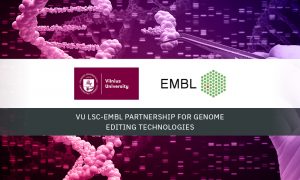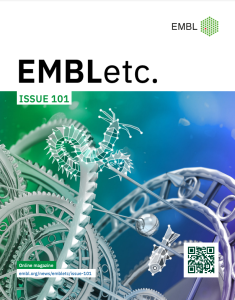11 April 2023

Lab MattersPeople & Perspectives
Scientists have the technology to edit the human genome. But when should they, and who contributes to these decisions?
2023
lab-matterspeople-perspectivesperspectives
5 October 2020

ConnectionsLab Matters
On 8 September, EMBL and Vilnius University Life Sciences Center signed a framework agreement for the establishment of the VU LSC–EMBL Partnership for Genome Editing Technologies.
2020
connectionslab-matters
15 May 2020

Science & Technology
Researchers from the Sharpe group at EMBL Barcelona have published a method to track the developmental history of a cell using the gene editing tool CRISPR–Cas9, but without the need to create transgenic organisms.
2020
sciencescience-technology
17 March 2020

EMBL Announcements
Committee recognises outstanding contributions of EMBL alumni to science journalism and genome editing
2020
alumniembl-announcements
16 October 2018
Science & Technology
How embryonic stem cells develop into the germ line
2018
sciencescience-technology
7 May 2018

Science & Technology
New platform transforms CRISPR gene editor into precision tool
2018
sciencescience-technology
No matching posts found








